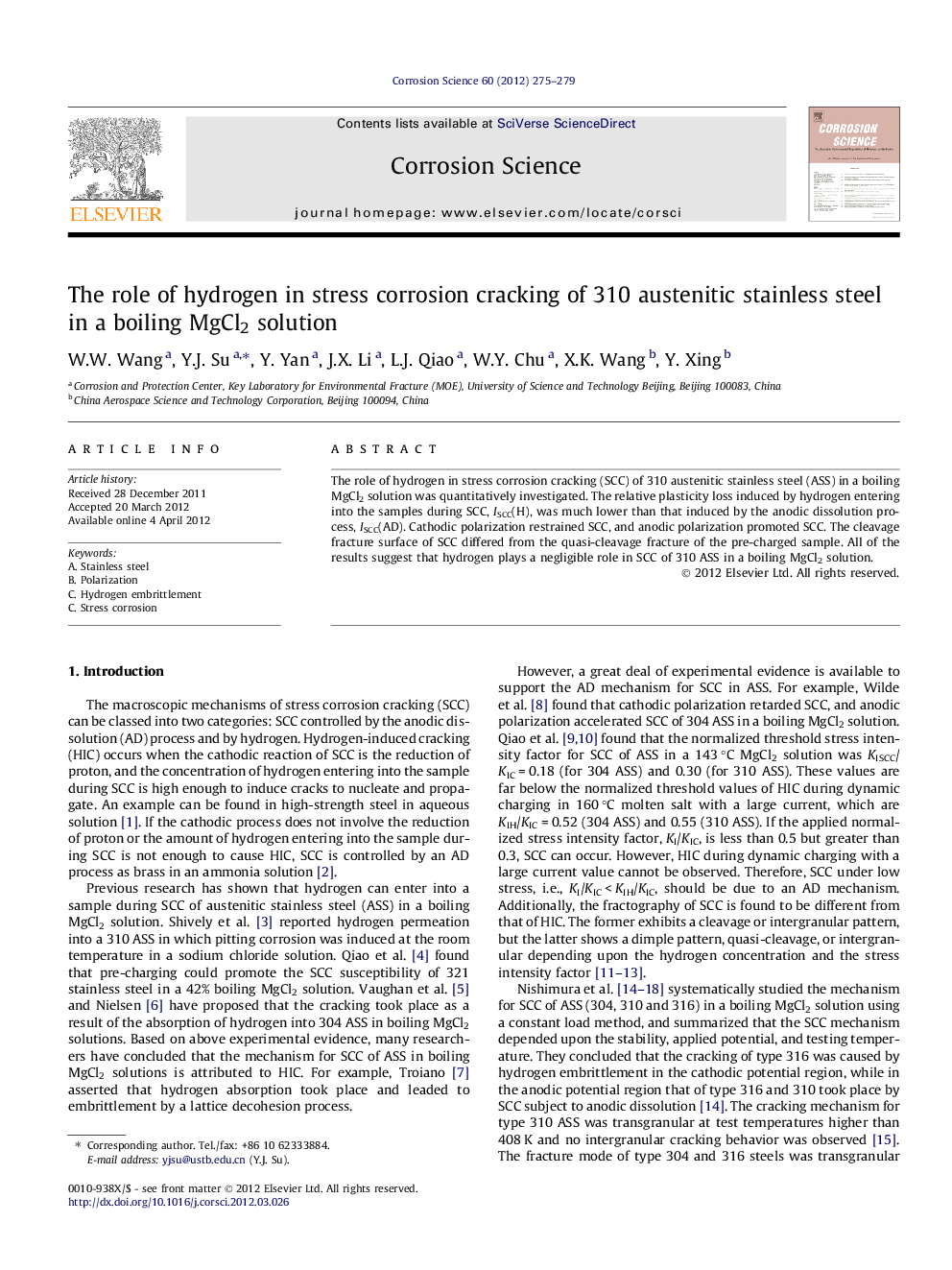| Article ID | Journal | Published Year | Pages | File Type |
|---|---|---|---|---|
| 1469557 | Corrosion Science | 2012 | 5 Pages |
The role of hydrogen in stress corrosion cracking (SCC) of 310 austenitic stainless steel (ASS) in a boiling MgCl2 solution was quantitatively investigated. The relative plasticity loss induced by hydrogen entering into the samples during SCC, ISCC(H), was much lower than that induced by the anodic dissolution process, ISCC(AD). Cathodic polarization restrained SCC, and anodic polarization promoted SCC. The cleavage fracture surface of SCC differed from the quasi-cleavage fracture of the pre-charged sample. All of the results suggest that hydrogen plays a negligible role in SCC of 310 ASS in a boiling MgCl2 solution.
► Hydrogen and the anodic dissolution to SCC were analyzed quantitatively. ► Hydrogen can enter into the sample via either cathodic or anodic polarization. ► Cathodic polarization restrains SCC and anodic polarization promotes SCC. ► Hydrogen plays a minor role and anodic dissolution attributes more to SCC.
